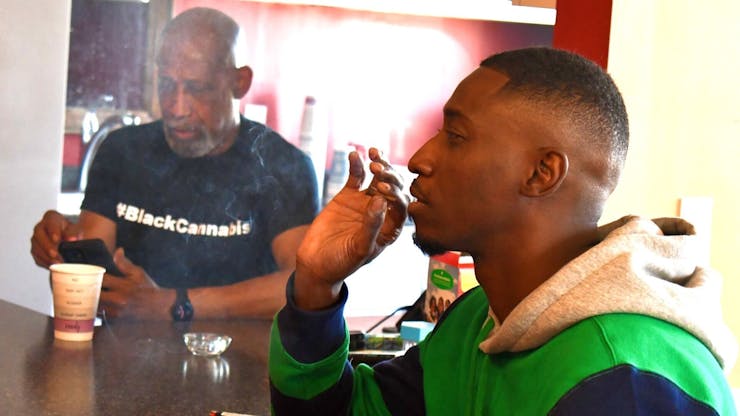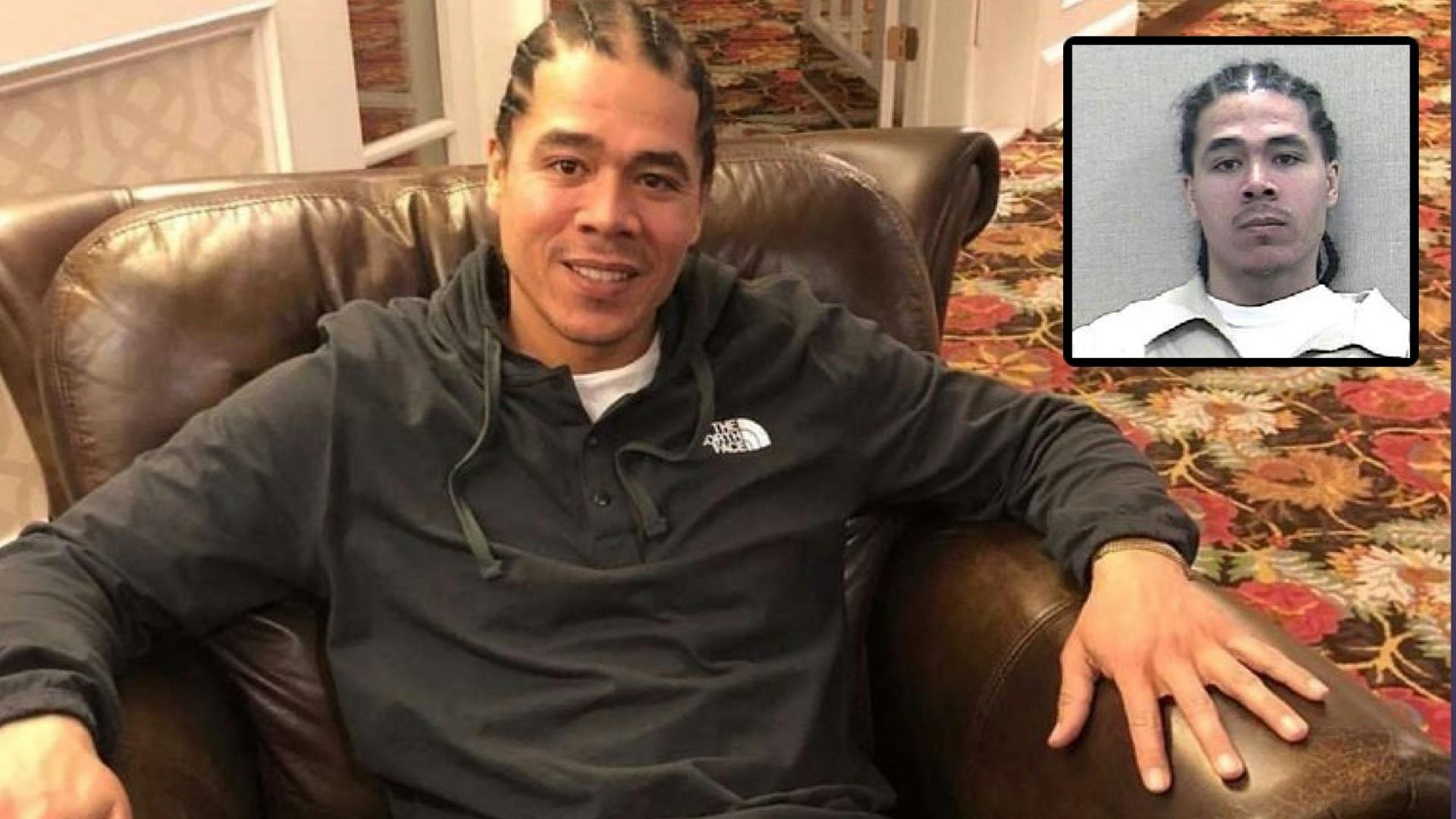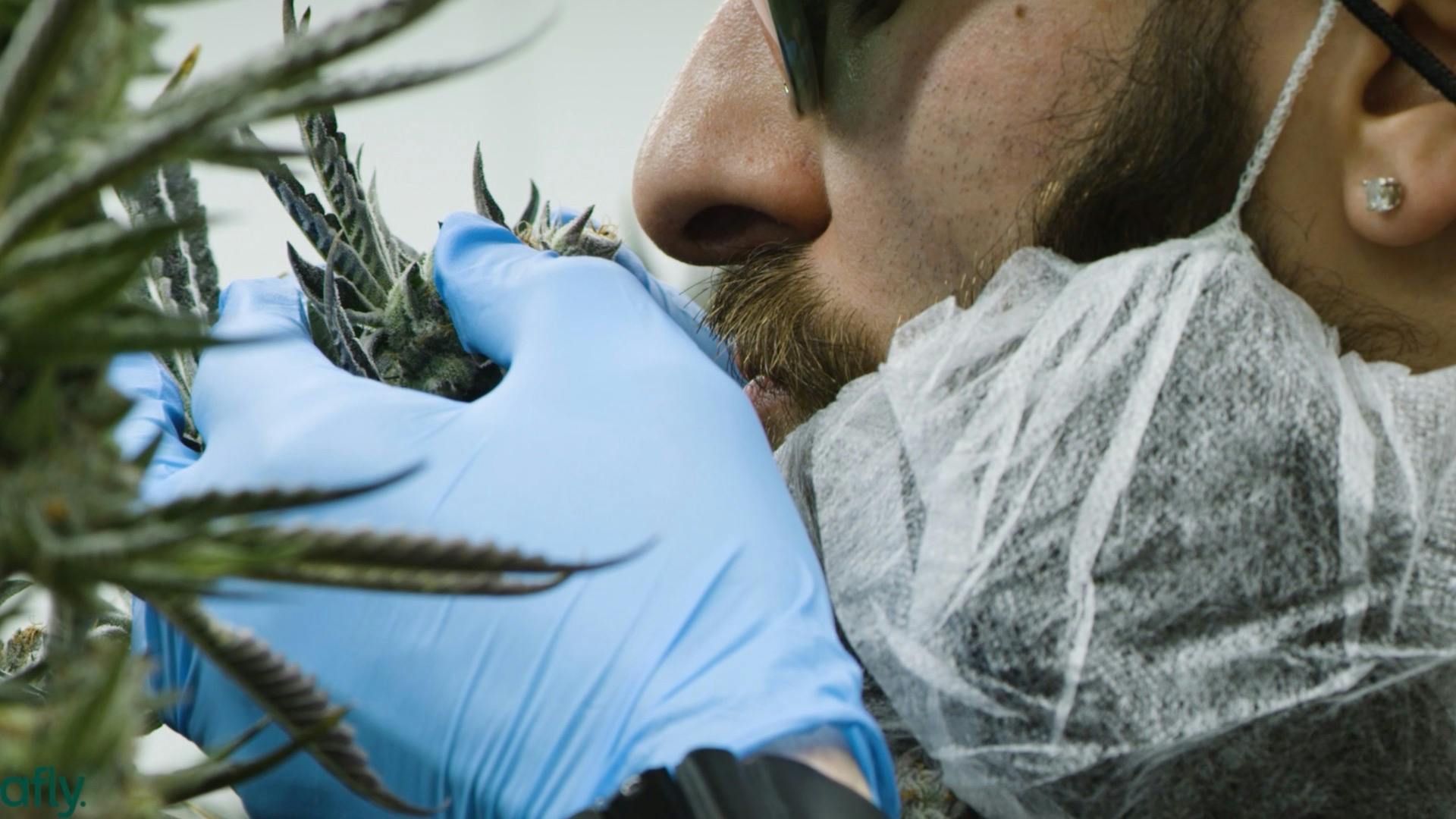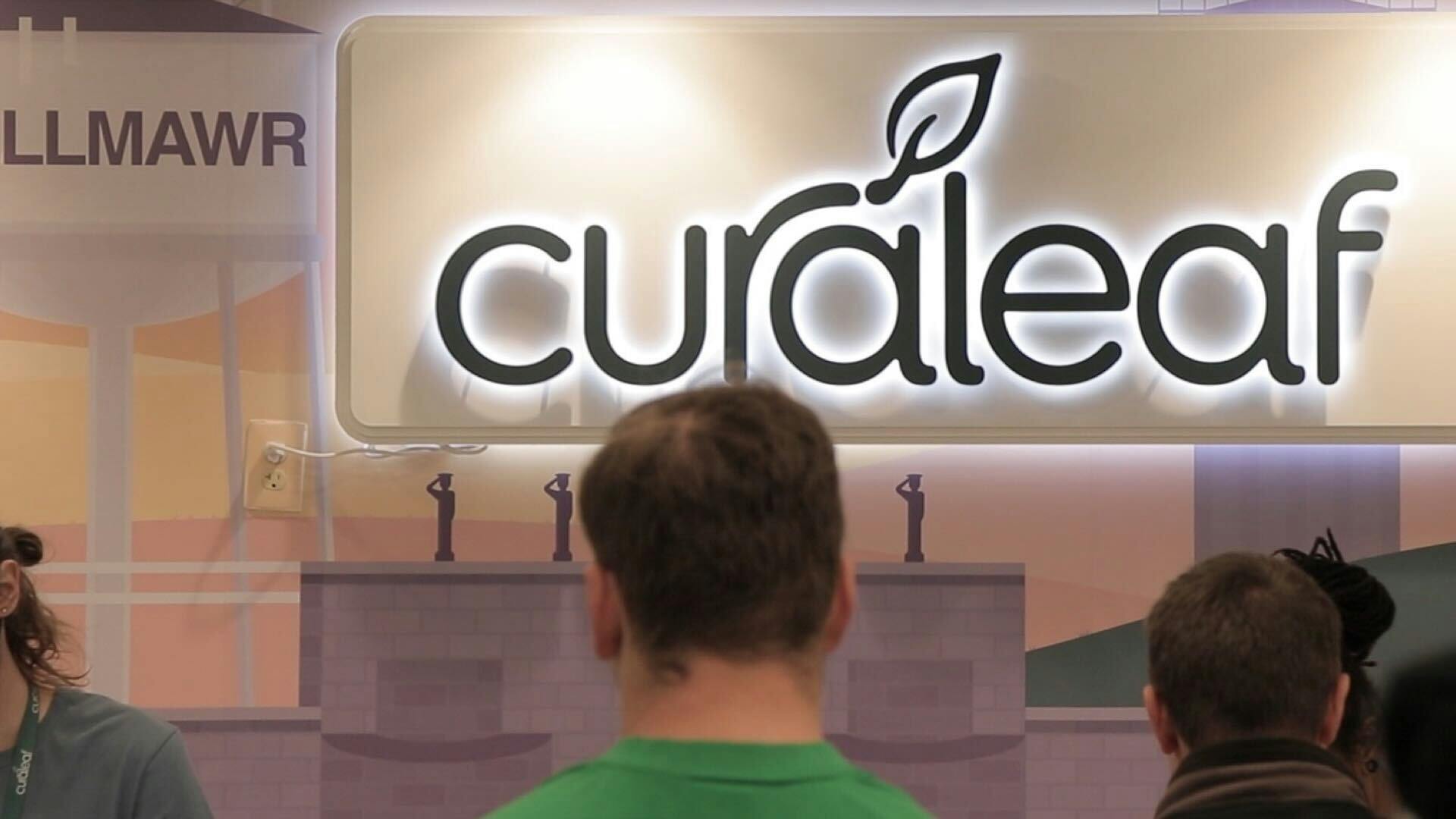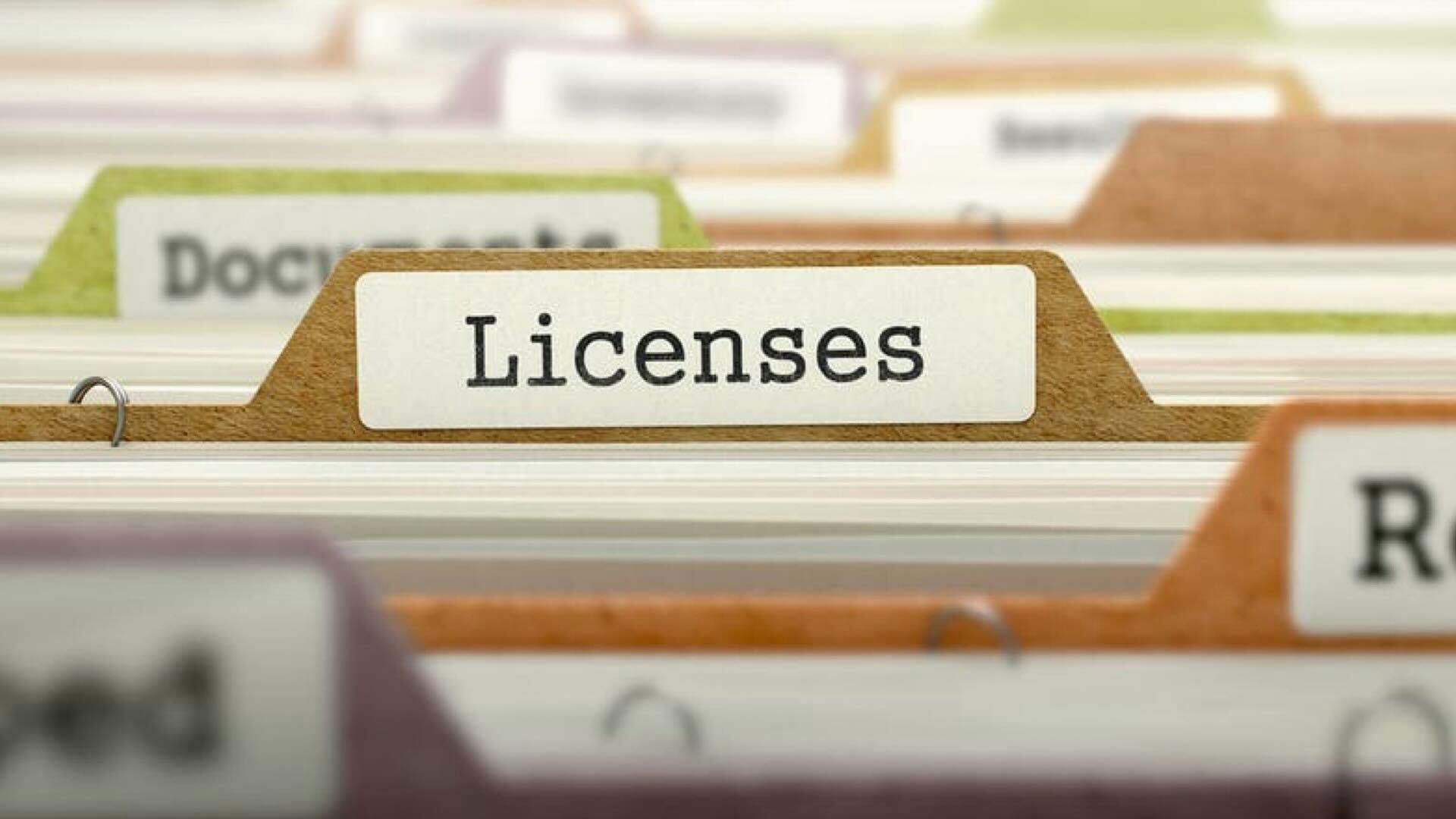Tahir Johnson explains how he joined New Jersey’s legal weed market and shares his plans to launch Simply Pure Trenton before 2022 ends.
New Jersey awarded its first 11 conditional adult-use retail licenses on Tuesday, May 24th. The awards came a month after 13 medical dispensaries were cleared to begin serving all adults. The cannabis board said they received over 1,000 applications across all license types since opening applications March 15.
Social equity has been the top point of discussion in The Garden State following adult-use legalization in 2020. Regulators have been transparent about their latest process, after many questioned the state’s choice to allow fully vertical companies from out of state to set up shop before small local businesses.
Of the 11 conditional retail awardees, six are microbusinesses. Microbusinesses must be entirely composed of NJ residents, per state policy. In March, NJ regulators said that 37 of the 68 licenses for cultivating and manufacturing recreational products went to “Diversely Owned businesses.” Among those with a majority stake in those businesses, 33 identify as Black, 9 as Latinx, and 4 as Asian.

It appears the state’s cannabis board is making a genuine effort to set a new standard for social equity moving forward.
Tahir Johnson is one of the first retail license awardees. He won a conditional license for himself, for Simply Pure Trenton NJ Inc, and also helped lifelong friend and fellow social-equity applicant John Dockery receive his own conditional license approval for a second location.
Leafly talked to Johnson the day after he got the big news to learn how he did it, what’s next for Simply Pure, and how the application process can be improved for future applicants.
Meet the awardee: Tahir Johnson

Tahir Johnson started his career in the cannabis industry in 2019. His goal was to transition from a career in wealth management at SunTrust to a full-time cannabis business owner. His first attempt at applying for a license failed but set the tone for Tahir’s latest victory.
“In 2019, I was new to the industry and was a part of another [ownership] group. Back then I was a small minority owner and only had a 10% stake. This [most recent application] was my first time doing it fully on my own.”
Tahir has since gained a wealth of professional experience and has even scored a cannabis licensing application in another state. Johnson currently serves as Director of Social Equity and Inclusion at the US Cannabis Council & Marijuana Policy Project and hosts industry leaders on his weekly podcast, The Cannabis Diversity Report. Each experience opened more doors for Johnson as he prepared to apply for New Jersey’s latest application round.
His authentic track record as an advocate for equitable legislative policies turned out to be his secret weapon.

“Having the opportunity to be a part of the advocacy process from the beginning changed the game for me. Fighting for equity before laws were passed with advocates like Leo Bridgewater and Jessica Gonzalez to get low-cost applications, clear social equity designations, and no real estate requirements were all crucial provisions that leveled the playing field for Black and brown entrepreneurs including myself.”
Shop highly rated dispensaries near you
Showing you dispensaries nearThe War on Drugs created tons of criminal records and prohibited everyone from gaining the experience needed to run a legal cannabis business. Tahir recognized that his years of working in the cannabis industry did not equate to the expertise needed to manage a compliant weed business. This is where his historic partnership with Wanda James, America’s first ever Black dispensary owner, became vital.
A Simply Pure Legacy

Ten-year cannabis retail veteran Wanda James believed that Tahir and his friend John Dockery fit the mold required to turn legacy operators into legit businesses. Both had charges for cannabis and qualified as social equity applicants under New Jersey law.
“My parents have seen all three of their sons arrested for cannabis, so it’s a blessing to change the dynamic of what cannabis means to my family.”
Tahir Johnson
Tahir’s little brother is named on the Simply Pure Trenton NJ Inc license with him. John Dockery’s license is for an LLC entity with the same name.
Both men qualified as social-equity, diversely-owned, and impact-zone designations on their application. Conditional awardees have 120 days from their award date to submit an annual conversion application, receive their final license, and begin operating.
“I wanted to partner with Wanda because I’m the type of person that believes in cooperative economics,” Johnson explained over the phone. “If I was going to start a cannabis business, especially a dispensary, I thought it’d be important to leverage her experience as the first Black dispensary owner in the country since she’s done everything I have to learn. In terms of adding value to her brand, I read about her interest in doing a franchise model two years ago.”
The new blueprint for success

Simply Pure is based in Colorado. Their licensing agreements with Johnson and Dockery grant rights to operate their licenses, plus a royalty, for applying Simply Pure’s best management practices and intellectual property in NJ.
The deal is a historic collaboration between a brand new social equity operator and one of the most notable Black operators in the industry.
“We are Black social equity applicants and the company who we are licensing from is Black-owned—That was a key selling point for my decision to go with Simply Pure,” Johnson told Leafly.
The New Jersey Cannabis Regulatory Commission (CRC) has tried to create limitations on ownership entities who prey on small cannabis businesses with unfair deals and financing. Still, it remains mostly up to applicants to vet prospective partners for integrity, and compliance with state law.
It initially proved difficult for Johnson to find partnership opportunities with larger companies that offered fair terms, “I talked to a lot of different MSO’s or larger companies that wanted to work together, but when we talk about company ownership, Wanda was the most fair, equitable deal,” Johnson said. “Every other person you talk about partnering, licensing their name, or giving application support wants to take your whole company.”
A lifelong journey
Tahir Johnson has not only paved a way for himself, but created an opportunity for childhood friend, John Dockery, to structure a similar licensing deal with Simply Pure. Dockery plans to operate in Trenton and qualifies for priority licensing in NJ due to his past cannabis offenses.
Despite similar licensing agreements, Johnson assisted Dockery’s process without becoming an actual equity owner on his friend’s application. This is the true spirit of the cannabis industry: A victim of the War on Drugs passing on a generational opportunity that helps a legacy operator go legit.
“This is my best friend since kindergarten and I did not take one dime or percent of equity and he got a winning application,” Johnson said. “Think about what people are doing and taking from people to get this; I was able to open the door for someone who’s been impacted by cannabis prohibition.”
Tahir remains grateful for the opportunity to be an example for social impact with a partner that stands behind equitable business.
“What we get from Wanda is a historic cannabis brand, Johnson said, “and once we get running, [then] comes the management support.”
The entire process is a testament to the value of community activism and operational expertise. These laws exist because the people of New Jersey demanded equity and accountability from the CRC.
Tahir’s tips for applying
Johnson praises the CRC for providing in-depth application resources. But that does not mean it was an easy road for applicants.
Tahir’s application strategy called for an experienced partner that would complement his community ties. Including a legally experienced operator on an application is a trusted formula in many states.
But New Jersey has done the most to make sure that legacy and licensed partners have equal footing.
“I have a good amount of industry connections and some know-how,” Johnson explained, “but I have never actually run a dispensary before. For John [Dockery], who’s coming from the legacy market, having someone who has regulated, legal experience this partnership just gives him the necessary advantage.”
Johnson believes that partners are crucial to any business plan, but is focused on sourcing in-house skills, which will help him and Dockery retain ownership as their businesses grow. Tahir also notes that the cannabis industry has multidisciplinary needs, creating demand for a wide-range of professional backgrounds, which can help set someone apart in the application process.
“When I was looking at the industry in 2019, the fact that I have a background in finance, investments, and wealth management allowed me to understand that side of the business and be more fluent than most people are,” said Johnson. “Those are some of the reasons why technical assistance is so important. It’s because most social equity applicants [don’t] have the connections and resources that I had out of the gate.”

Johnson also encourages applicants to build mutually beneficial relationships with trusted service providers and community organizations as they explore the industry. From labor peace agreements with the local UFCW, to employment partnerships with the New Jersey Reentry Corporation, Tahir built key relationships with state and local organizations to differentiate himself in the application process long before applying.
Kalu and Jackie Watanabe, Vicente Sederberg LLP, and Chirali Patel of Blaze Responsibly are all respected consultants and firms that contributed to Johnson’s application over the past year. They helped him secure wholesale supply-chain agreements with two of the largest suppliers in the state: Columbia Care and Curaleaf, a huge advantage for both his application and future outlook.
There is currently no limit on microbusiness licenses for adult-use cannabis stores in New Jersey. That means it’s not too late for you to start preparing your application, and there’s no rush. State law requires the CRC to allow an additional 90-day window to accept new applications if they ever decide to place a cap on licenses.
If you want to learn more about the process: Here’s Leafly’s guide on how to apply.
But even after winning a conditional license, applicants like Tahir are still left to find a local municipality that will accept their business.
Johnson notes that nearly 80% of towns in New Jersey have opted out of housing cannabis business so far. And many of those that opted-in still haven’t established proper ordinances. This can prove troublesome for applicants, who are on a short deadline, and push many to take costly real estate risks.
Luckily for Johnson, he was able to secure municipal approval in Ewing, a suburb of Trenton, just a day after being awarded his conditional license.
Today I was awarded my conditional retail dispensary license by the @NewJerseyCRC and also received a unanimous vote of local support from the Ewing town council. God is good! 🙌🏿🙏🏿 pic.twitter.com/GLRnCSjwrU
— Tahir Johnson (@tahdiddy) May 25, 2022
“We always say: ‘What Trenton makes the world takes,’ and for me to be able to bring economic empowerment to my hometown is a chance I’m thankful for,” Johnson told Leafly before getting off the line. He and Dockery hope that Simply Pure Trenton Inc. and LLC can open doors before 2022 ends.
The lifelong friends are in pole position to become the first social-equity retailers in the state of New Jersey. If they keep shaking and baking the industry at this pace, even Ricky Bobby won’t be able to put out their flame.
